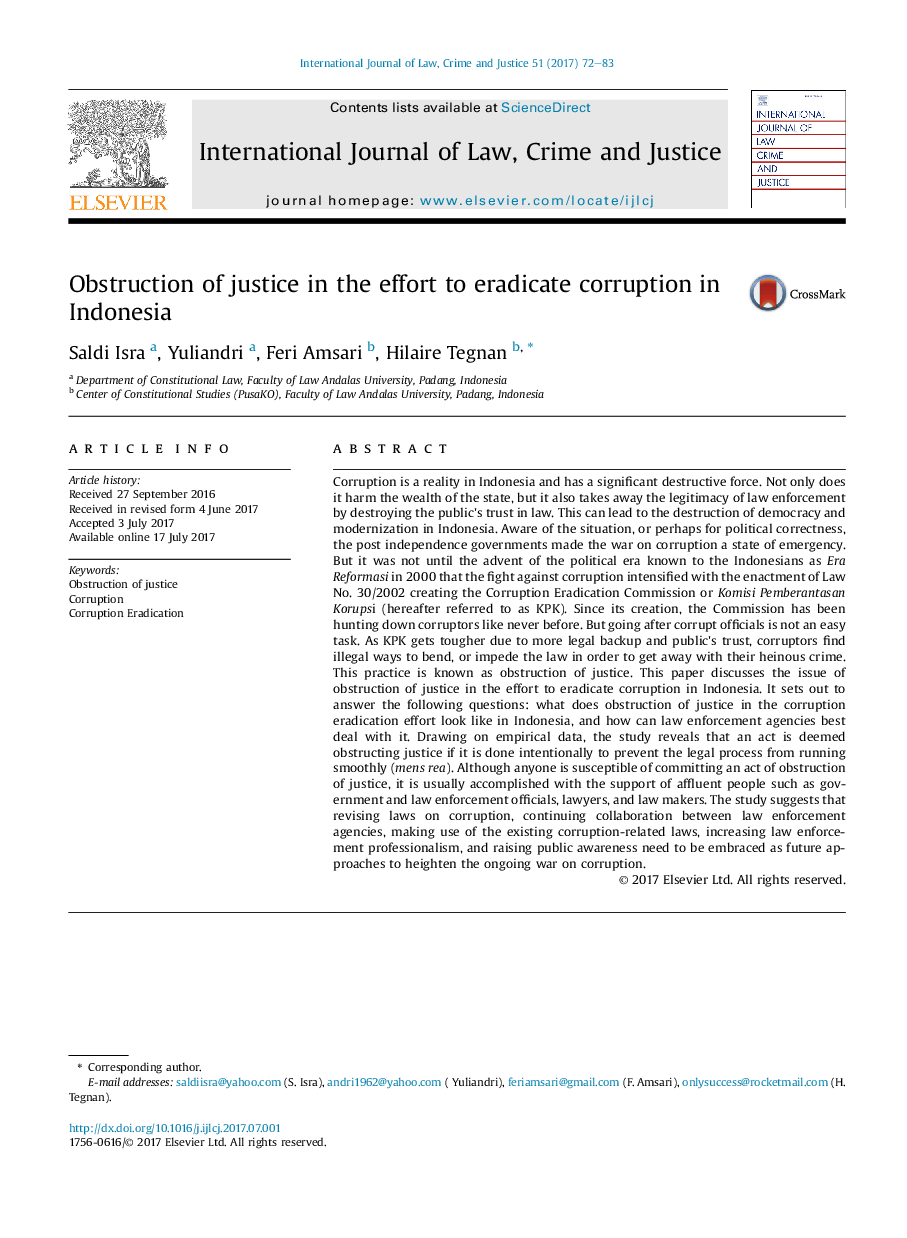ترجمه فارسی عنوان مقاله
انکار عدالت در تلاش برای ریشه کن کردن فساد در اندونزی
عنوان انگلیسی
Obstruction of justice in the effort to eradicate corruption in Indonesia
| کد مقاله | سال انتشار | تعداد صفحات مقاله انگلیسی |
|---|---|---|
| 86354 | 2017 | 12 صفحه PDF |
منبع

Publisher : Elsevier - Science Direct (الزویر - ساینس دایرکت)
Journal : International Journal of Law, Crime and Justice, Volume 51, December 2017, Pages 72-83
ترجمه کلمات کلیدی
تضعیف عدالت، فساد، ریشه کنی فساد،
کلمات کلیدی انگلیسی
Obstruction of justice; Corruption; Corruption Eradication;

